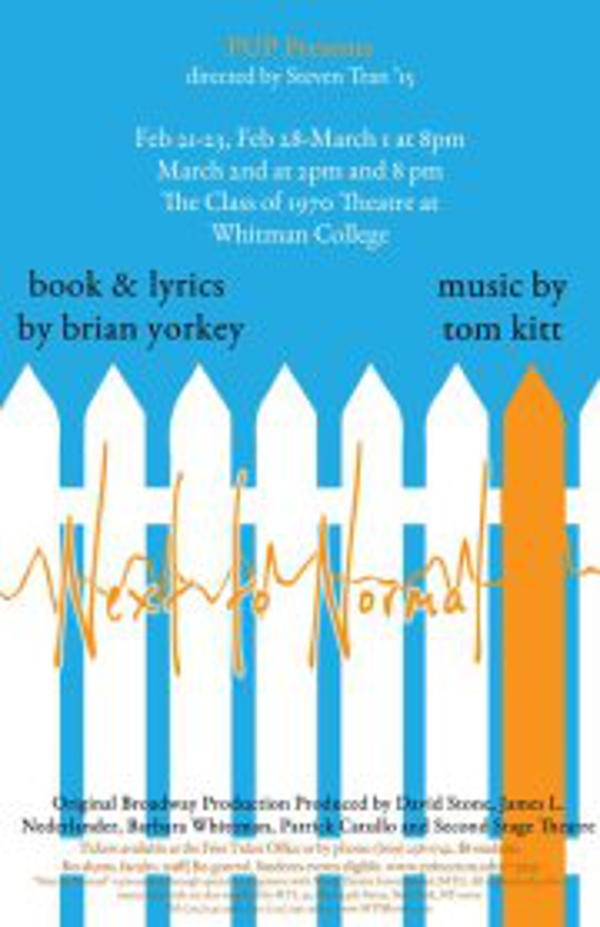Anything But Normal
Next to Normal
Book & Lyrics by Brian Yorkey
Music by Tom Kitt
Directed by Steven Tran
February 21–23 and February 28-March 2, 8:00 PM
March 2, 2:oo PM
Class of 1970 Theater at Whitman College
$8 for students, $10 for Princeton faculty and senior citizens, $12 for the general public

“And you find you don’t have to be happy at all… to be happy you’re alive,” croons Olivia Nice in the finale of the Princeton University Players’ production of the Tony-Award winning Musical, Next to Normal. And it is a sentiment that echoes wonderfully throughout the rest of the play.
Whitman Theatre seamlessly transforms into a house with a lot of secrets and a hospital buries them even deeper. Directed by Steven Tran ’15, the fast-paced and heartbreaking musical comes shockingly to life.
In an effort not to spoil the show for those not acquainted with it, I’ll only gloss over its main facts. The Goodmans appear to be a normal family: Father (Dan), Mother (Diana), Daughter (Natalie), and Son (Gabe). The marriage is a little strained, Natalie is a typical stressed out Ivy League hopeful with a love interest (Henry), and Gabe is a little rebellious. But this picture of American normality is shattered by Diana’s debilitating fight with mental illness and psychopharmacology. This fight in which she always seems to be losing sends monstrous ripples through the lives of the people that she lives with. It’s a typical, familiar, and often-demonized story for American families, and the willingness of the musical to face these issues head on is admirable.
What is also admirable is the effort and empathy evidenced by the cast. Princeton University Players puts on not a feel good musical, but a feel everything musical that leaves the audience members different. The emotion left on the stage is jarring and hard to watch, but also inexplicably attractive.
The musical’s heroine, Diana (Olivia Nice), gives a standout performance. Because the story centers on her, an actress playing Diana must be willing to leave everything on the stage. And Nice does so beautifully. We are scared for her, hopeful for her, sad for her, frightened by the demons that haunt her. All we want is for her to be okay. For an audience member to feel such emotions, we must be fully immersed into the pain that the character is feeling. And I was.
Also impressive is the acting of the freshman members of the cast. Natalie (Deirdre Ricaurte), Gabe ( Ryan Gedrich), and Henry (Manny Marichal) bring to their roles an identifiable innocence and a desire to be loved that the audience members can recognize. We want Natalie to be free from this constant need to be loved. It is heartbreaking every time she rebuffs the love freely given by Henry (played so sweetly by Marichal) because we know that she is simply too scared to allow herself to give in to it. Gabe, who we should be (and often times are) horrified by, also simply wants to be recognized. For all his swagger, he’s still just a child who wants his daddy to notice him.
The parallels in the relationships between Natalie and Henry and Dan and Diana are stark, pointed, and well-directed. We hope against hope that the sweet young love that between Natalie and Henry does not end up like the scarred, complicated, and fatigued love between Dan and Diana. It’s a long shot, but still we hope.
I have one more thing to say about the show: go see it. It may begin with the seemingly innocuous “Just Another Day”, but I don’t think this is just another show.
For the years that we have been in the essay writing industry, our essay writers have achieved enough experience of providing quality and useful services. Come and excel with expert essay writers for we shall provide you with writings which are original at a price which lies within your essay budgets.